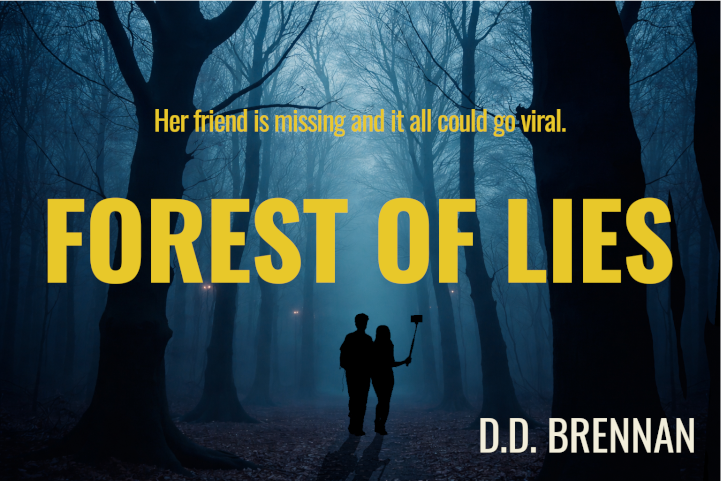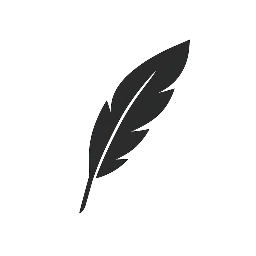
Looking for a change, Killian has left Ireland for Kyoto, hoping to find a cure for his burnout. He meets Lana, a Tokyo-cute, intoxicating American, who convinces him to help her find her friend—missing in Japan’s infamous Suicide Forest.
Francesca’s camper van lies moss-covered, her belongings scattered throughout the forest. Lana knows she went there with a mysterious man, but has she really done the unthinkable? Or has her boyfriend made it look like suicide?
The clues aren’t adding up.
Lana is livestreaming for her growing fan base, and the closer they get to the truth, the less clear everything becomes for Killian.
With the dangers skyrocketing, how far will Killian go for love?
And how far will Lana go for clicks?
BLOG:BOOK RESEARCH.
Japan, Isolation and the West’s Casual Obsession
I keep finding myself thinking about Japan. Not the shiny modern image of bullet trains and neon billboards, but the quieter moments where life looks heavier, slower and loaded with something that I increasingly feel here in Dublin. There’s this sense in every part of the world that people are moving through modern life resigned to their fate, the pressure and weight of expectation heavy in every breath.
I’d heard about Japan’s social isolation and suicide epidemics, and being someone interested in social dynamics, I wanted to know why—and how—the West’s current obsession with all things Japanese might be affecting youth culture here. After researching this phenomenon, I began to write a short story about hikikomori: people who disappear into their rooms for years, barely going outside, cutting themselves off from everyone.
When I first got into writing seriously, I retreated from the world, mainly because I was tired of spending all my time and money in clubs and bars. Hence, I knew the story would be about social isolation in some way. Estimates suggest over a million people are hikikomori in Japan, often young men, who withdraw completely from society, sometimes for years. They lock themselves in their rooms, surviving on late-night gaming, online chats or total silence. Crushing social pressure to succeed, rigid hierarchies, fear of burdening others, anxiety and depression all play a part. I knew that feeling well having lived in London and moving back to a Dublin that had glowed up. Technology makes it easier to disappear: food deliveries, digital entertainment and online anonymity replace the need for physical connection. In Japan, Hikikomori is the act of retreat from a game whose rules feel impossible to win. Sometimes (often) it feels easier to simply exist than to live.
The suicide statistics are chilling: Japan has been notorious for high rates for decades. In 2015, it ranked among the top twenty countries worldwide. Reading that made me uneasy. It isn’t just about social pressure or shame—it’s the idea that failure itself is public. And isn’t that, in some ways, a good description of the West over the last decade or two?
Japan has been a global leader in technological innovation and has maintained a strong sense of social cohesion since its postwar economic boom in the 1960s. I thought about how, by comparison, Europe—and Ireland in particular—is still a long way behind. Yet we are catching up. This is apparent when you wander around Dublin or sit in internationally themed cafés. There’s a sense that everyone is taking a breath to escape; that we’re all running in circles. It feels absurd how obsessed everyone is with appearing in control. There’s a rhythm in Dublin that’s almost hypnotic but beneath it, in the quiet corners and the occasional news report, there’s the same dark threads that have been running through Japanese lives for decades.
Irish youth culture’s obsession with Japan baffled me. I kept asking, what’s at the core of it? Why is Japanese culture everywhere? Anime, manga, Pokémon, cosplay, AAA games and ramen shops in every city. My own feed is full of it. I can’t scroll through a single day without seeing another animated spectacle with a Japanese slant. Are we just fascinated by the exotic? Or are we drawn to something else—something that resonates with parts of ourselves that are quietly lonely?
I decided to leave the hikikomori story for someone closer to it. Instead, I had written the guts of a novel about two westerners travelling around Japan and all the ways they avoid their own crushing pressure and loneliness—with Irishman Killian arriving in Japan, directionless in life, and meeting an American named Lana in Kyoto, who is similarly adrift. I dug around some numbers about American loneliness. According to several reports, about half of American adults say they feel lonely. HALF! And the number of men without close friends has shot up since the ’90s. The pandemic didn’t help, obviously, but even before, I had a creeping sense that a lot of people are living parallel lives: together but apart, connected but alone.
Once I’d exhausted my research for what is now a novel called Forest of Lies, I knew I’d take my characters into a place where they questioned what real connection is but in a flippant and somewhat affected way. I’d figured out the book but was worse off in terms of the answers to the problem of social isolation and why Japanese culture is still alluring nowadays, despite us being far more self aware.
Is it the artistic expression alone? Anime is vibrant, emotional and over the top. Video games are flashy and absorbing, sometimes sexually unbridled. Even Pokémon, a game about catching cartoon monsters, holds a kind of cult-like obsession over grown adults. Could it be that part of the appeal is that it offers a structure? A way to accept sadness; rules for living a lonely life; a chastened way to cope and define a world of struggle? Maybe, maybe not. But for someone scrolling their feeds at midnight, lonely and isolated, Japanese culture can feel like a window into a different logic: a life full of pressure, yes, but also with ritualistic and aesthetic attention. There’s an appeal in that, especially when the real world feels messy, undefined and overwhelming.
Japan is full of stories of extreme isolation; of people quietly giving up; of suicides that often happen in those silent apartments. I stumbled across a video of a sealed-off Japanese apartment, police tape over the door, subtitles eavesdropping on neighbours whispering about the young man who’d kept to himself for years. I was most struck by their apathy. It felt like the story of a culture with one foot in the grave. One I, if I’m honest, only half-understood. It makes you question your direction: your assumptions about what you want, need and think you need. The way social media can make a life of scrolling look like a choice.
I keep asking myself: are Western fans of all things Japanese taking lessons they don’t realize? Absorbing the customs, the pressures, the obsession with perfection and the quiet isolation? Are they just enjoying the surface—the games, the visuals, the fantasy worlds—or is there more to it?
The parallel is eerie. The West has its own growing epidemic of loneliness. And maybe our coping mechanism of finding “the new thing” has just shifted to Japan. But it’s been stuck on Japan for many years, and perhaps for the reasons mentioned above: melancholy is at best consumable and at worst, cool.
Hence, I wrote ‘Forest of Lies’ with this in mind: a warning that hidden behind the neon and pop culture is emptiness, and that modernity, while rejecting old ways, creates new problems with no known remedies.
Any time I walk past yet another lonely person on a bench in Dublin, pretending to be consumed by something on their phone, I have an urge to sit next to them and say, “What’s the craic with ye? You okay?” Years ago, I’d chat to strangers with ease and maybe even brighten their day. Irish did that to keep each other going. But that’s dying out—or already dead. I sense defeat in a lot of people nowadays, and I don’t bother trying to lift them. It’s not apathy on my part, I just feel society’s casual ways of chasing away doom seems easier for most. Those people are just existing in my eyes and with a hopelessness that even a random stranger’s kindness can’t penetrate.
Observing people, reading and trying to connect feels emptier in the last decade. A decade where Japanese culture became prescient. Japan’s long struggles with extremely high social expectations and crashing loneliness signal to the West in ways that feel both harmless and troubling. It’s a mirror we don’t realize we’ve been looking into with purpose, trying to make sense of our changing world that doesn’t neatly map onto the human experience. There is a lot to admire about Japan: honour and tradition; honesty and accountability; innovation and cultural integrity. Yet perhaps all of that amounts to a rigid and unbending existence for many. What we in the west have discovered may not be what we hoped for in Japan and only served as an icy hand, guiding us towards a future where existing feels easier than living.
THE BRAG
23
SINGLES AND REMIXES
Worked with artists and record labels since 2011 releasing music—under my former DJ name, Demon Groove.
